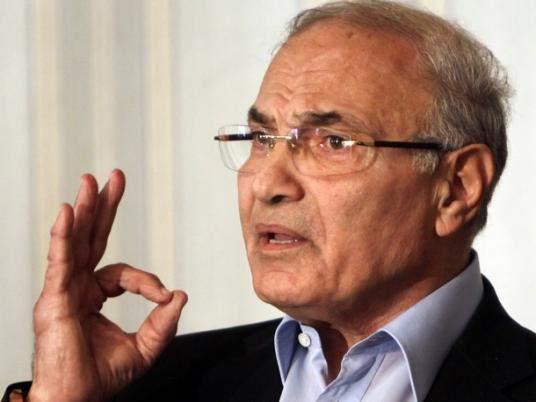 Egypt's de facto leader has ratified a law that prevents certain officials who served under former President Hosni Mubarak from running in the presidential election slated for May, MENA state news agency reported.
Egypt's de facto leader has ratified a law that prevents certain officials who served under former President Hosni Mubarak from running in the presidential election slated for May, MENA state news agency reported.
The law was published in the official Egyptian Gazette Monday, which means that Ahmed Shafiq — who was appointed as prime minister by Mubarak at the end of his rule — would be barred from completing the presidential race. It would go into effect Tuesday, the day after it was published.
The law is an amendment to the political rights law approved by Parliament on 12 April, and was originally intended to prevent Omar Suleiman, the former vice president and spy chief under Mubarak, from running.
But the Presidential Elections Commission has already disqualified Suleiman for failing to fulfill requirements for nomination.
MENA said Tantawi "ratified the amendments to the law on political rights," which deprives "everyone who has worked as president, vice president, prime minister, chief of the dissolved National Democratic Party or its secretary general, or has been a member of the party's political bureau or its general secretariat over the 10 years preceding 11 February 2011" of exercising his or her political rights.
The enforcement of the law is purely a procedural issue. In Egypt, laws are considered in effect once they are published in the official Egyptian Gazette, a publication that announces new laws and comes out on Mondays and Thursdays.
Some speculation had surfaced that the law will be published on Thursday, which also marks the day in which the electoral commission is due to publish a definitive list of candidates.
Commentators had said that by publishing the law on Thursday and indicating that it will enter into force the following day, Shafiq might still be able to run.
But daily newspaper Al-Shorouk's website attained a photocopy of the Monday issue of the official Egyptian Gazette, which published the law.
The law would not exclude Amr Moussa, a front-runner who served as Mubarak's foreign minister until 2001 before heading the Arab League, because it extends back only 10 years and does not apply to ex-ministers.
Ashraf Thabet, a leader from the Salafi-oriented Nour Party and the deputy parliamentary speaker, told Egyptian TV on Monday that the military council's endorsement of the draft law threatens to fuel a crisis.
If Shafiq is indeed ousted from the race and appeals his exclusion, and if the Supreme Constitutional Court later rules in his favor, Thabet said, such a verdict could cancel the result of the election.
The Constitutional Declaration issued in March 2011 gave the ruling generals presidential powers, including the right to endorse laws.
The military council had referred the draft law to the Supreme Constitutional Court to say whether it was constitutional one week after Parliament had proposed it. But the court said it had no jurisdiction to give an opinion before a law is promulgated.
The presidential election starts on 23 May with two days of voting and is expected to go to a June runoff between the top two candidates.
Front-runners include former Arab League chief and foreign minister Amr Moussa, and former Muslim Brotherhood member Abdel Moneim Abouel Fotouh.



